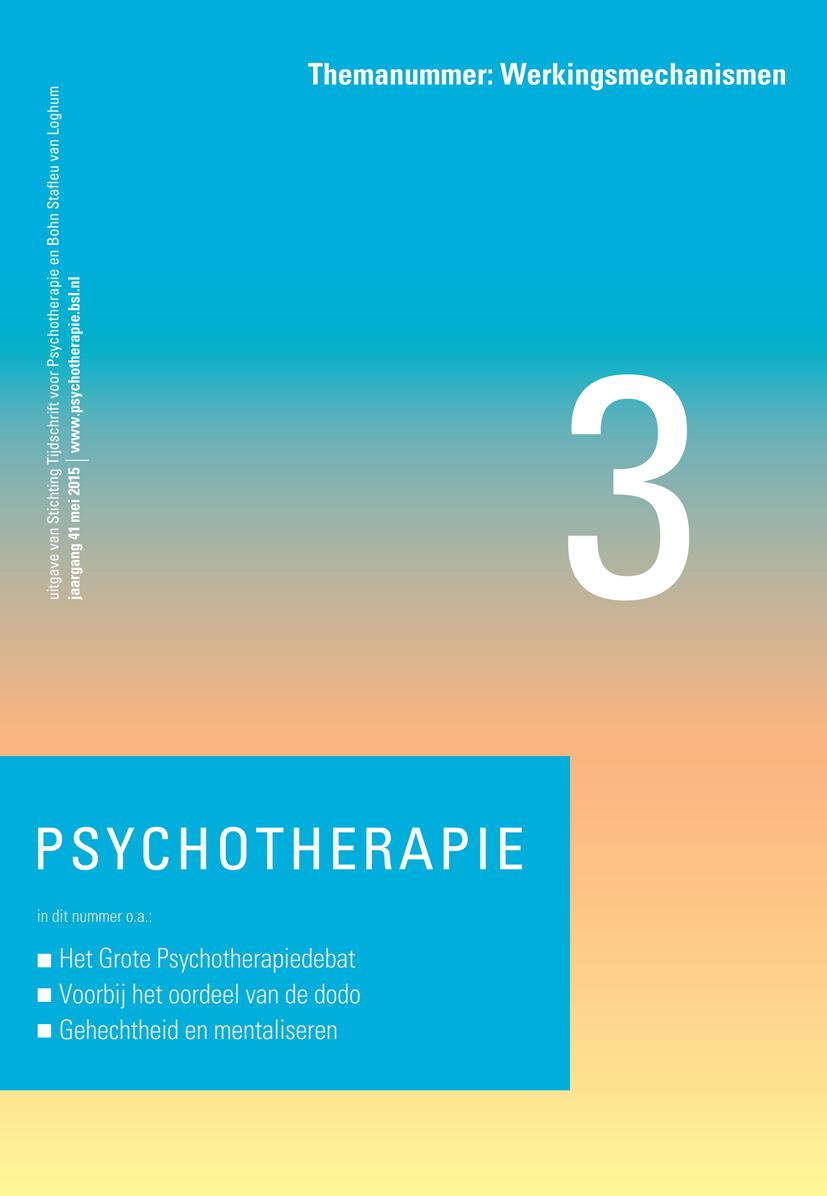Ger P.J. Keijsers
This inaugural lecture debates the treatment effects of specific psychological treatment techniques and of common psychotherapy factors including the working alliance. Specific psychological treatment techniques are effective because they affect impaired cognitive processes underlying specific mental disorders. Empirical evidence and theoretical underpinning generally are satisfactory. The quality of the therapeutic alliance is consistently associated with favorable psychotherapy outcomes. It is questionable whether this effect results from patients’ enhanced personal growth or self-awareness. Rather, research on social influence and resistance to change implicates that the working alliance serves to get patients actively involved in their change process and carry out the treatment techniques. In the forthcoming years we have to find out whether briefer psychological treatments such as eHealth recently introduced in the general mental health care system in the Netherlands, are able to maintain favorable treatment outcomes, or fail to sufficiently engage a substantial proportion of patients in their treatments.
Marcus Huibers
Psychotherapy works, but not for everyone. There are potentially three ways to increase the effectiveness of psychotherapy: to develop new therapies, gain insight into the underlying working mechanisms, or research into patient profiles that predict optimal outcomes in existing psychotherapies. However, newly introduced forms of psychotherapy have rarely led to higher effectiveness rates. The workings mechanisms of psychotherapy are much debated, but poorly researched. Research from our own group demonstrates how difficult it is to determine the processes that account for the recovery observed in psychotherapy. The most likely reason for the lack of evidence-based explanation is diversity: different change trajectories are active in different groups of patients, which implies that general change patterns that characterize all patients cannot be found. It is probably more efficient to assess which patient characteristics can be associated with good or bad response to psychotherapy, an approach also known as personalized medicine. We developed a multivariate prediction model that produces predicted outcome scores for individual patients in two equally effective psychotherapies for depression (cognitive therapy and interpersonal therapy) and the predicted advantage of one therapy over the other. Results from this study show that there is a large group of patients for whom it does matter which therapy they receive.
Mary Target
From the psychoanalytic point of view, development and especially the development of the ability to mentalize are important. Mentalization takes place within a safe attachment situation. We have to differentiate between two kinds of pathology: process disorders in which the ability to create mental representations is not there, and representation disorders, in which there are mental representations but they are in conflict. The ability to mentalize is central and is taken as the common factor in the process of change in all effective forms of psychotherapy. We are looking in this lecture to the way the person is developing from a somatic to a (reflective) psychological self. The steps in between are: the equivalent and pretend mode. At the end we will discuss some aspects of the process of change in psychotherapy.

